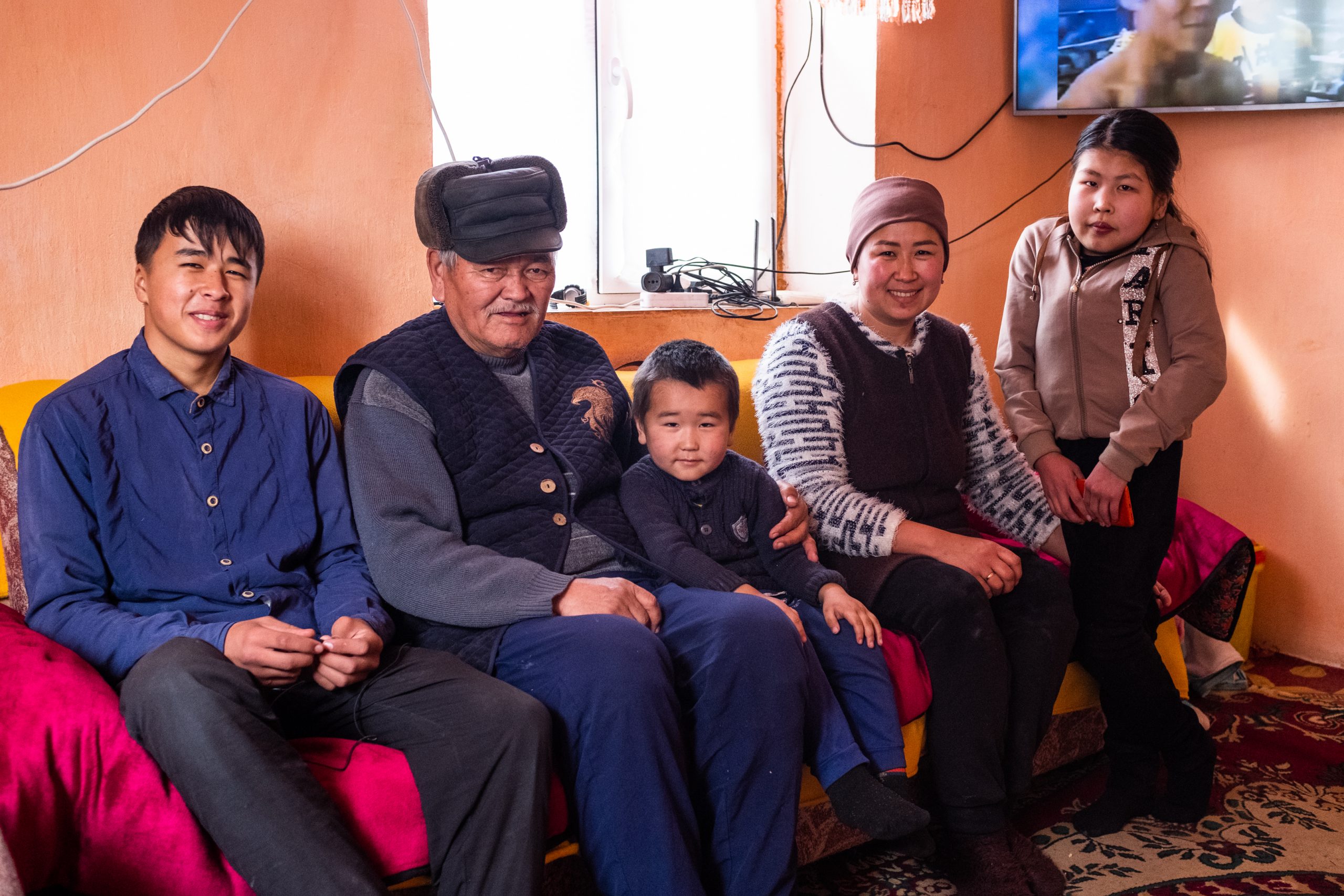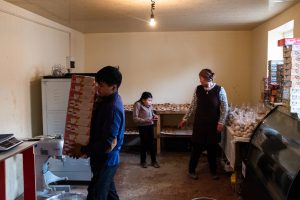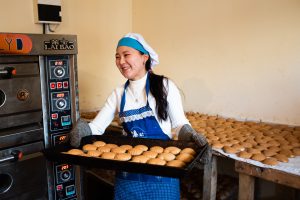
Anara Erkebaeva (pictured far right, above) lives in Uchkun village, near the city of Osh, in southern Kyrgyzstan. Even though she had to drop out of school for health reasons at age 13, Anara stayed in contact with her teachers, one of whom recommended she enroll in the English Access Microscholarship Program (ACCESS). Anara’s mother drove her to Osh to study English there for two years. After learning how to design projects and prepare grant applications through ACCESS, Anara decided to become an entrepreneur. With USAID’s support, she turned a life-long passion for baking into a full-time job.
Starting a business is challenging but being a person with a disability adds another layer of difficulty. According to the Ministry of Social Development of Kyrgyzstan, there are 193,000 registered persons with disabilities in the country. More than 7,000 persons with disabilities live in Osh alone, often with limited access to education, employment, and other opportunities. Roughly 80 to 85 percent of persons with disabilities in the country are unemployed. The situation is even more complicated for girls and women with disabilities. Like many others, Anara struggled to find a job.
A Pastry Dream Comes to Life

But Anara did not let her disability slow her down. She applied for a grant through the USAID Enterprise Competitiveness Project in the Kyrgyz Republic, implemented by ACDI/VOCA. In 2019, she used this grant to open a small pastry shop and named it Tortoniya.
The USAID Enterprise Competitiveness Project helps small- and medium-sized enterprises like Anara’s increase their sales and jobs by supporting better market access, competition, investment, and opportunities for women and youth. The cost of opening the shop was $10,000, half of which Anara invested herself. With USAID’s support, Anara equipped her shop with modern baking equipment, ovens, mixers, a refrigerator, display refrigerators, and a food printer. Anara now produces pastries and sweets for residents of her own and neighboring villages.
A Family Business

Anara’s family helps run the pastry shop and supports her business ideas. Her mother, Shatgul, from whom Anara inherited her love of baking, helps manage daily tasks and deliveries. Anara’s brother, Tilek, helps prepare dough and make cookies. Her grandfather, Bekenbay, helps by driving Shatgul and Tilek to deliver pastries to retail shops in Uchkun village and the nearby Kara-Suu market.
Rebranding and Online Sales
Anara dreams of soon running a successful online business. Thanks to her flexible hours, she stays up late learning computer and graphic design skills. Anara plans to build a website for her brand to ensure steady online sales. She currently runs Tortoniya’s social media page and manages online orders via Instagram.
“I am currently working on rebranding Tortoniya to reflect what we stand for. … I am choosing colors and styles that will represent our brand. I want it to stand out.”
— Anara Erkebaeva, owner of the Tortoniya pastry shop and USAID Enterprise Competitiveness Project participant
Creating Opportunities for Women and Youth
As Anara’s business grew, her family needed help to keep up with demand. In the summer of 2020, Anara employed two interns from her village through USAID’s Youth Internship Program. The internship went smoothly, and both young women, Janylay and Elmira, were offered full-time jobs. They earn 10,000 soms ($118 U.S. dollars) a month, which is a good starting salary in the region where employment opportunities are rare.

“The first week was challenging, but once I got the hang of things it was easier. I dream of opening my own bakery one day.”
—Janylay, 18, intern-turned-employee of Tortoniya
Tortoniya’s sales are steadily growing. The shop produces 100 boxes of cookies a day. Anara and Shatgul also fulfill online orders for cakes. The home-based baking business has grown into a small-scale enterprise with a base of regular customers.
Anara can now afford to hire full-time employees. In the coming years, she expects to create 10 full-time jobs for women in her village. She is also mentoring others. Ten aspiring bakers from the neighboring Yshkavan village found out about Tortoniya and visited the shop. Anara and Shatgul openly shared their tips for running a successful bakery business.
Learn more about the USAID Enterprise Competitiveness Project- in the Kyrgyz Republic.
Learn more about our work in the Kyrgyz Republic.








